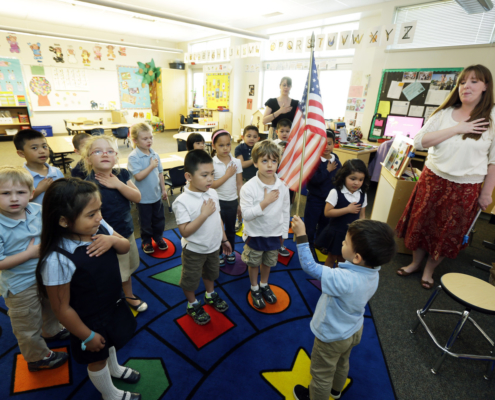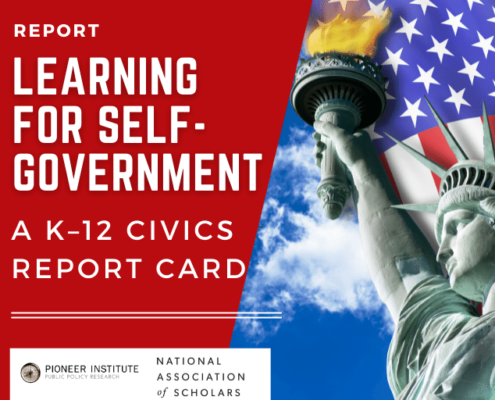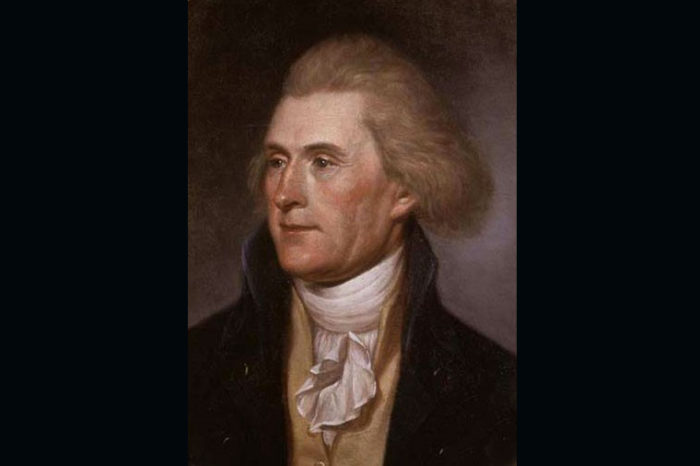Op-ed: Time is right to study Jefferson in our schools
/0 Comments/in Featured, News, Oped: US History, US History /by Jamie GassBy Jamie Gass and Will Fitzhugh
“Students of reading, writing, and common arithmetick . . . Graecian, Roman, English, and American history . . .,” Thomas Jefferson advised about democratic education, “should be able to guard the sacred deposit of the rights and liberties of their fellow citizens.”
Friday marks the 275th anniversary of Jefferson’s birthday. Given his world-changing achievements, this milestone is worthy of recognizing — and of being taught in our public schools. His contributions to the American civilization are incalculable; he was a revolutionary, statesman, diplomat, man-of-letters, scientist, architect, and apostle of liberty.
Rather than forcing a titan like Jefferson to conform to our era’s often Lilliputian-style narcissism, we should study history by entering the past with imagination and humility.
In drafting the Declaration of Independence, the most elegant and universally quoted political document in history, Jefferson displayed his greatest talents. He powerfully combined literary language and self-evident truths to shape the legal and political future of the United States.
Read more of this op-ed in your favorite news outlet: The Standard Times of New Bedford, The Berkshire Eagle, The Salem News, The MetroWest Daily News, The Providence Journal, and Gloucester Times, and The Daily Caller.
Get Updates On Our US History Initiative
Related Posts:

Yale’s Pulitzer-Winning Prof. John Lewis Gaddis on Cold War Lessons for Russia’s Hot War in Ukraine

UK’s Charles Moore on Lady Margaret Thatcher & Cold War Leadership

Civics Education is More Important than Ever

EdChoice’s VP Leslie Hiner on Landmark SCOTUS Decisions for School Choice

ESPN Senior Writer Howard Bryant on Race in Boston & American Sports

New Study Shows What Works for Civics Education

Parent Advocate Virginia Walden Ford on Civil Rights, School Choice, & the D.C. Voucher Program

Stanford’s Prof. Clayborne Carson on Dr. Martin Luther King, Jr.’s Civil Rights Vision & Legacy

Dr. Marc Seifer on Nikola Tesla, Pioneer of the Modern Electrical Age

Rutgers Prof. Paul Israel on Thomas Edison, Inventions, & American Patents

Lipan Apache Tribe’s Pastor Robert Soto on Native American Heritage Month & Religious Liberty

Award-Winner Prof. David Reynolds on Abraham Lincoln & American Civil War Culture

Prof. Raymond Arsenault on the 60th Anniversary of the Freedom Rides & Civil Rights

NYT Best Seller Dr. Kate Clifford Larson on Fannie Lou Hamer & the Mississippi Civil Rights Movement




